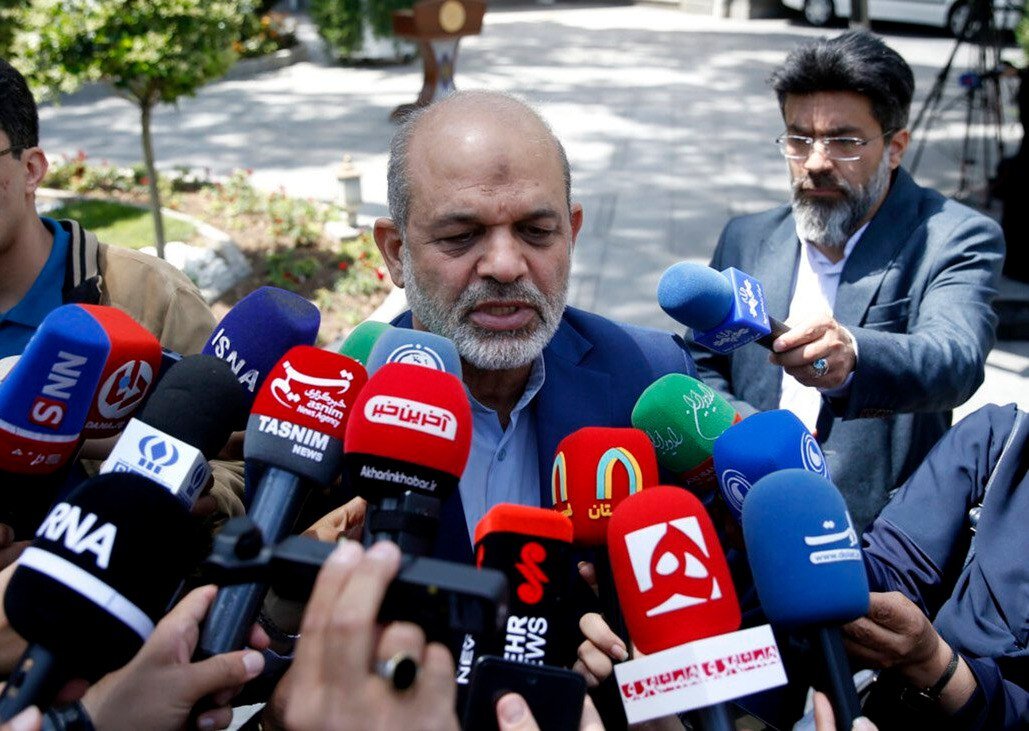Interior minister elucidates on snap presidential election amidst national mourning

TEHRAN - The Iranian Interior Minister has outlined the procedural and preparatory steps for the upcoming snap presidential election, emphasizing the role of the Constitutional Council in vetting candidates and the two-week period allocated for campaign advertisements.
Speaking on the sidelines of the weekly cabinet meeting on Wednesday, Ahmad Vahidi acknowledged the nation's mourning following the tragic helicopter crash that claimed the lives of President Ebrahim Raisi and other officials.
Despite the national grief, he stressed that the officials must fulfill their duties to ensure the smooth execution of the snap election.
Vahidi confirmed that all necessary preparations have been made, including the establishment of the Election Headquarters, the formation of executive boards, notifications to provincial authorities, and the creation of the advertising commission, as mandated by law.
He announced that candidate registration would commence on Thursday, with a five-day window from 8 a.m. daily.
Candidates must meet specific criteria, including age requirements and the absence of a criminal record, as detailed in the official notices.
Following the registration, the Constitutional Council will vet the candidates' qualifications. The approved candidates will then have two weeks to campaign, culminating on June 28, the date set for the first round of the presidential election. If no candidate secures a majority, a runoff will be held on July 5.
Addressing the potential for electronic voting, Minister Vahidi indicated that while voter authentication would be conducted electronically, full electronic voting in some cities would require further agreement with the Constitutional Council.
He emphasized the importance of inclusive participation from all political perspectives, expressing hope for an election characterized by health, security, participation, and competition, as emphasized by Ayatollah Khamenei, the Leader of the Islamic Revolution.
The helicopter crash that stunned Iran, resulting in the loss of President Raisi and others, has profoundly impacted the nation.
In the wake of this tragedy, Iran's Constitutional Council spokesperson reiterated the constitutional provisions ensuring the presidency's continuity.
Hadi Tahan Nazif affirmed that, according to the Constitution and historical precedents post-Islamic Revolution, the presidency retains a four-year term beginning immediately after the election.
"This is an unfortunate and painful loss for the Iranian nation," Nazif remarked, referencing Article 131 of the Constitution, which designates that the First Vice President, with the Leader's approval, will assume the president's duties and powers in such events.
Following the fatal helicopter crash, Interim President Mohammad Mokhber held a critical meeting with the heads of Iran's legislative and judicial branches. This meeting, attended by Parliament Speaker Mohammad Bagher Ghalibaf and Judiciary Chief Gholam-Hossein Mohseni-Eje'i, highlighted the necessity for sustained coordination and cooperation among the three branches of government to navigate the nation's challenges during this difficult period.
